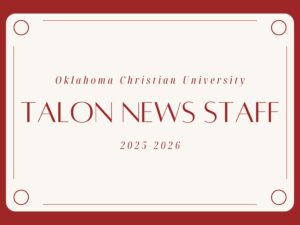We’ve heard Psalm 121 our entire lives: “I lift up my eyes to the mountains — where does my help come from? My help comes from the Lord, the maker of heaven and earth.” It continues, affirming us that God will be our ever-vigilant watchman, keeping us from “all harm.” It is a song of ascent, a hymn of triumph, the ultimate pep talk.
But then there are other sorts of prayers. Take II Samuel 15:25-26, for example. To set the scene, King David’s children have engaged in violence and sexual brutalities that would make “Game of Thrones” blush; now, his son is poised to attack Jerusalem. In response, David prays, “If the Lord sees fit, He will bring me back to see the Ark and the Tabernacle again. But if He is through with me, then let Him do what seems best to Him.”
On one hand, the Psalmist says God will shield us from harm, and on the other, King David, the “man after God’s own heart,” says that he’s willing to die if that is God’s will.
“Let Him do what seems best to Him.” Do you like that prayer? Does it make you comfortable, conjuring images of a cushy future filled with the perfect family and a dream job?
If we were to say this in our daily lives, we’d likely be thinking about God leading us into the mission field or pushing us to give a little extra offering this Sunday. David, however, is truly giving up his life, laying everything he has at God’s feet. He’s saying, “You have the map, God. If your plan for me is done, kill me.”
Not exactly the same idea as “My help comes from the Lord.”
It seems these prayers directly contradict one another. One fires us up, leading us to believe that anything we do for God’s glory is destined to succeed. Going to Honduras as a doctor? You’ll set up a clinic and lead all your patients to Christ. Writing a sermon? Your words will resound like thunder and spark a religious revival. Want to plant a church? You’ll find a building and pay the bills without a hitch, because “He will not let my foot slip.” How could any of these things be against God’s will? Why would He deny any of them?
The other prayer is far grimmer. It implies that, no matter all the good you’ve done, tragedy may (or will) rear its head. You will contract Ebola in the mission field. Your sermons will offend, and society will label you extreme. Your church will be burgled and ransacked.
One prayer says God is a shield, the other says He is a general who is okay with the idea of “collateral damage.” This seems conflicting, but God has never been summed up in one word. He is the father and the judge, creator and destroyer.
And this discussion is missing one key ingredient. All too often, we stress about how to pray, when Jesus, the Son of God, told us exactly what to say in Matthew 6. The phrase significant to this conversation is that of “Thy will be done.”
Will I raise $1 million in a bake sale or develop a grave illness? It’s not up to me. Do I need to say a prayer like Psalm 121, or will my future be more like II Samuel? God’s will, not mine, will determine that.
Neither prayer from the Old Testament is bad, of course — any conversation with the Father is a holy thing. We must, however, view Jesus’ template as the yardstick for effective prayer. No matter what we say or ask, we should bookend it with a genuine plea of “Thy will be done.”













Be First to Comment